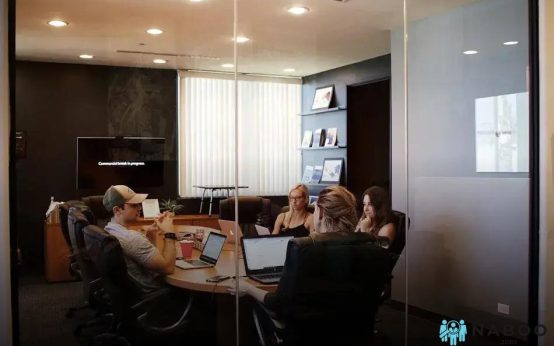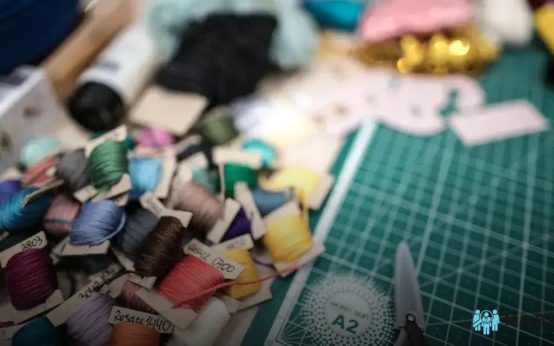When entering an interview, preparing questions to ask your interviewer is crucial. Inquiring about company culture, growth opportunities, and team dynamics not only shows your interest but also helps you make an informed decision if offered the position. Consider these vital questions as you plan your interview strategy to ensure a successful outcome.
Understanding Company Culture: A Key Query
When preparing for an interview, one crucial aspect to consider is the understanding of company culture. This not only allows you to assess if you are a good fit for the organization, but also if the organization is a good fit for you. Company culture encompasses the shared values, beliefs, and practices that characterize an organization. It’s important to inquire about this to see how the company’s values align with your own.
During the interview, you might want to ask, “Can you give me examples of how the company culture is demonstrated on a day-to-day basis?” or “What are the most important values of the company and how are they reflected in the workplace activities?” These questions help you get a sense of the environment and whether it is collaborative, fast-paced, innovative, or traditional. Understanding this can help you predict your potential satisfaction and success within the role.
Additionally, learning about the company’s approach to work-life balance, professional development opportunities, and team interactions can provide deeper insights into its culture. You may wish to ask about how the company handles challenges to maintain culture during growth or changes. These insights are critical in assessing whether the company offers an environment in which you can thrive.
Also, consider asking if the company encourages social interaction outside of work or supports community involvement. This can be a strong indicator of the company’s emphasis on strong interpersonal relationships and community-building. Understanding these aspects assures you align with the company’s mission and can integrate smoothly into their teams and overall environment.
Growth Opportunities: Don’t Miss This Question
Asking about growth opportunities during an interview demonstrates your interest in not just the position, but also your future with the company. It helps you understand if there is potential for advancement and skill development. When an interviewer sees you’re thinking long-term, it paints you as dedicated and valuable. Consider asking questions like, “What are the potential growth paths in this role?” or “How does the company support professional development?”.
Recognize the Company’s Commitment
Asking about growth opportunities also unveils how committed the company is to employee development. Are there training programs available? Does the company invest in employees by providing workshops or courses? Learning about these offerings can help you evaluate if the company will support your career objectives.
Understanding Job Advancement
Understanding the typical career trajectory in the organization can shed light on potential job satisfaction and longevity. If a company regularly promotes internally, it shows they value existing talent and reinforce a culture of growth. This can be an excellent opportunity for you to envision your own career path.
Team Dynamics: Essential for Success
In the quest to excel in your job interview, asking about team dynamics can provide you with deep insights into the company’s internal environment. Effective team dynamics are the backbone of workplace success, influencing everything from productivity to employee satisfaction.
Focus on collaboration: Understanding how team members work together can help you gauge whether your potential team is supportive and cooperative. Ask interviewers about typical collaboration strategies and teamwork expectations. Do they hold regular team meetings? How are conflicts and differences resolved?
Communication styles are crucial to team effectiveness. Inquire about the preferred channels of communication within the team and company as a whole. Is there a mix of face-to-face, email, or chat communication? Knowing this can help assess whether you’ll fit into the existing communication structure.
Ask about team goals and how success is measured. Are there regular performance evaluations? Is there a focus on individual accomplishments or on team success? This knowledge can clarify whether you’ll be encouraged to grow both personally and as part of a collective unit.
Probing into team support dynamics can reveal a lot about the internal support mechanisms. Ask how team members support each other. How do they celebrate achievements? Understanding these elements can offer a clearer picture of the team’s cohesiveness.
Role of leadership in team dynamics is another aspect to explore. How does the leader foster teamwork and inclusivity? The response will offer insights into whether the leadership style is conducive to promoting a united team effort.
By thoroughly understanding team dynamics, you position yourself to make a more informed decision about your potential role, ensuring alignment with your work style and career objectives.
Leadership Style: Crucial for Alignment
During a job interview, understanding the leadership style of your potential future employer is essential for ensuring alignment with your own work preferences. Different leaders have different approaches, and it’s crucial to find a fit that complements your working style.
Asking questions about whether the leadership encourages autonomy or prefers a more hands-on approach can clarify expectations. Consider questions like:
- Can you describe how leadership supports team projects?
- Does the leadership style tend to be directive or collaborative?
- How does the leadership team encourage feedback and innovation?
Employee Empowerment
Understanding how leaders empower their employees can significantly impact your level of job satisfaction and personal growth. A supportive leadership team that values employee input is often crucial for career progression and job satisfaction.
Explore aspects such as:
- Does the leadership provide opportunities for professional development?
- What mechanisms are in place for recognizing and rewarding employee contributions?
Ensuring that there is alignment between the leadership style and your work preferences can lead to a more productive and harmonious work environment.
Future Challenges: Demonstrate Your Proactivity
Inquiring about future challenges showcases your willingness to take initiative and face potential difficulties head-on. When you ask your interviewer about upcoming hurdles the company might face, you demonstrate a proactive mindset and readiness to contribute to overcoming these obstacles.
Engaging in a discussion about future challenges also offers insight into the company’s long-term strategy and immediate priorities. This information can be crucial for understanding where you can add value and how you might fit into the bigger picture.
Additionally, you can use this conversation to highlight your own skills and experiences that are relevant to the projected challenges. By doing so, you indicate your ability to support the organization in its mission, potentially setting yourself apart from other candidates.
Moreover, ask specific questions about how the organization plans to manage these challenges. This not only provides you with useful information but also shows your interest in being an integral part of their future endeavors.
Overall, discussing future challenges during your interview reflects a strategic approach, underscoring your eagerness to engage with the company’s core objectives and reinforcing your suitability for the role.




